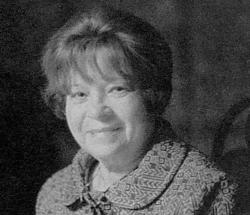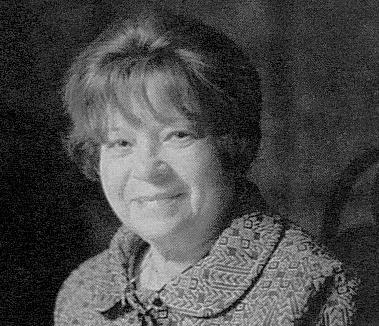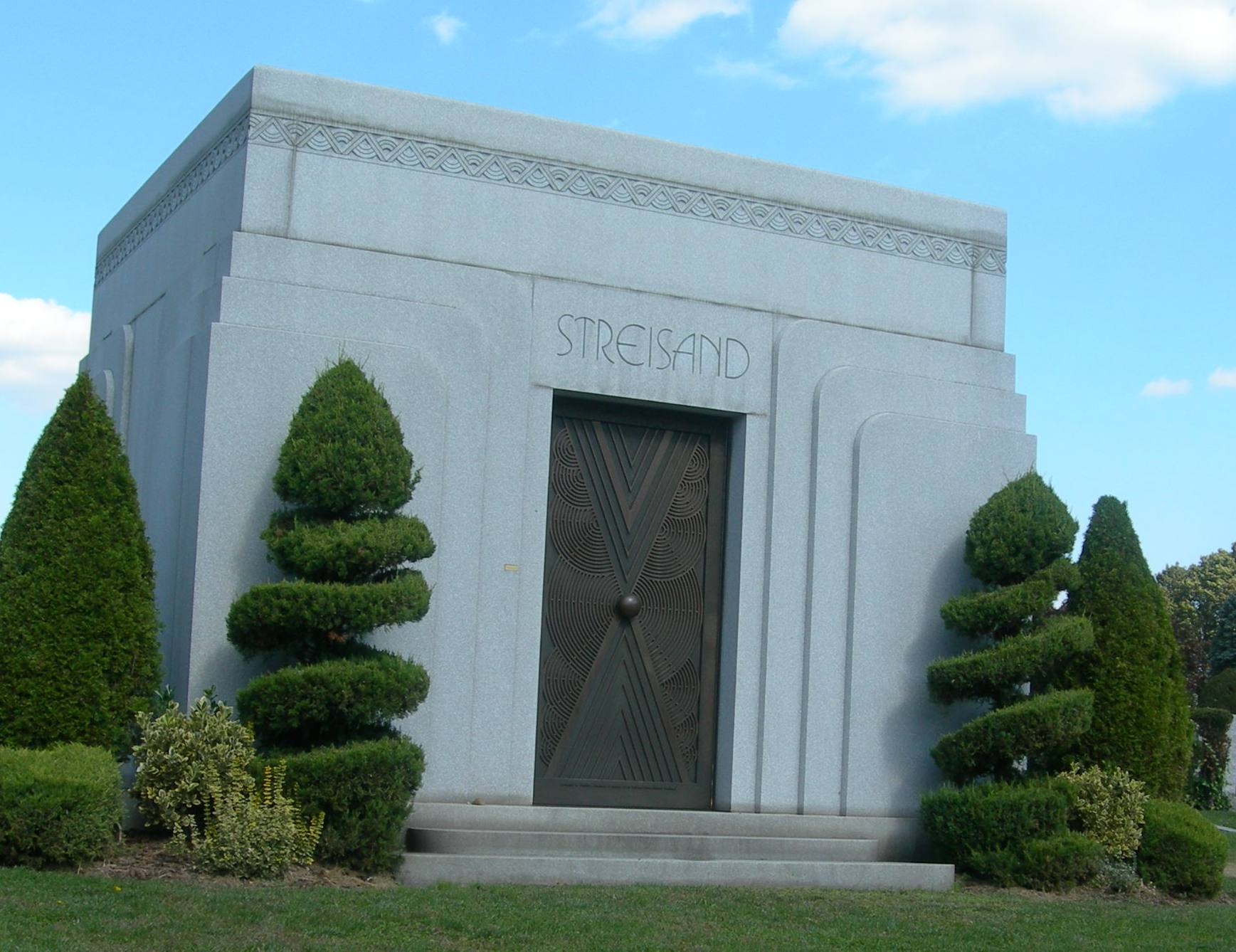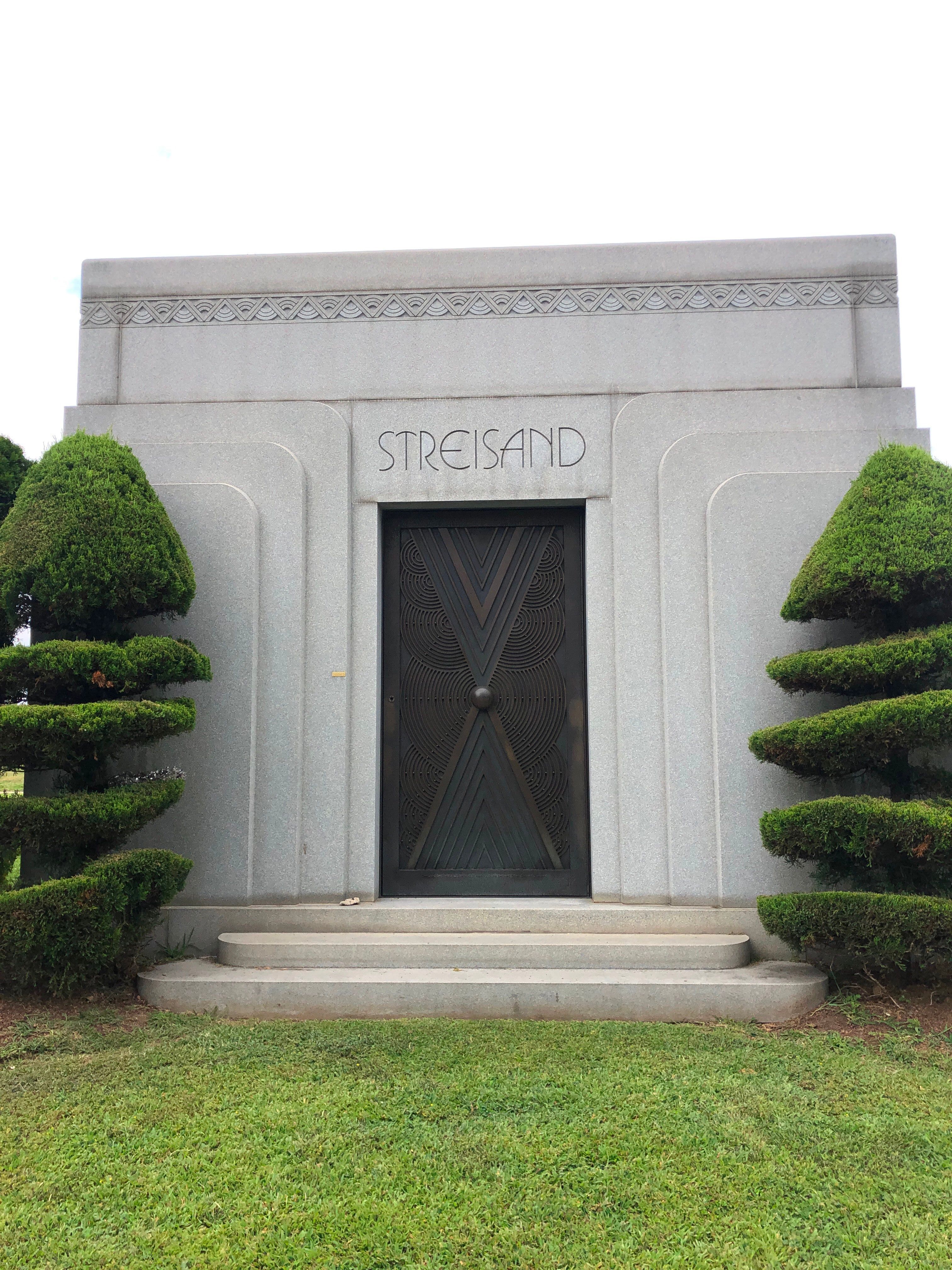Barbra's intense dislike of her stepfather, did not, however, extend to her new baby sister; she doted on Rosalyn and enjoyed looking after her. It took Barbra years to forgive her mother for not putting an end to the emotional abuse she felt she suffered at the hands of her stepfather. What Barbra was too young to realize perhaps was that Diana's response to difficult situations was usually motivated by fear: She had already lost one husband, and she probably feared that if she censured Kind, she might lose him as well. With a new baby in the family, she did not want to face further financial hardship. The Kind marriage collapsed by 1953 and was terminated four years later in an acrimonious divorce. Fear was also the motivating factor behind Diana's lack of enthusiasm when, as a young teenager, Barbra began expressing her desire to become an actress. Diana was afraid that her daughter was not attractive enough to succeed in show business and that she would inevitably face harsh rejection in search of acting jobs. (Which is exactly what happened until Barbra added singing to her theatrical resume.) Diana tried to convince her headstrong daughter to consider a more prosaic career path, perhaps something in the New York school system, where she herself now worked. At the time, Barbra saw her mother's lack of enthusiasm for her aspirations as a wounding discouragement. She would later admit, however that Diana's skepticism served her well, "I'm thankful to my mother," she said. "My desires were strengthened by wanting to prove to my mother that I could be a star." In addition, evidence shows that Diana was more supportive of Barbra's burning ambitions than legend would have it. It's true that she never fully grasped the depth of her daughter's artistic drive, but she did take her on several early auditions (including one for MGM records and an open call for Otto Preminger's Saint Joan), and she turned over hard-earned savings to Barbra to partially finance her summer stint at the Malden Bridge Playhouse. As Barbra struggled as a young acting student in Manhattan immediately following her high school graduation, Diana would supply home-cooked meals and what she thought was sage advice about finding an occupation to fall back on if Barbra's acting career fizzled. She finally realized, however, that her daughter's ambitions were iron clad. "She always did what she wanted to do," Diana sighed to a columnist years later. As the Streisand career ignited in the early sixties, Diana would often react to Barbra's accomplishments with an offhand detachment. Fearing her daughter "would get a swelled head," she would seldom compliment her directly; saying rather that a friend had told her about a nice interview or hearing her on the radio. She would not hesitate, however, to tell the press
that Barbra inherited her intelligence from Emanuel, but the talent and voice from her. It took Barbra years to accept that her mother was simply never going to be able to express the kind of pride in her achievements that she longed to hear. Finally, she made a wry joke of it, telling reporters that Diana was more concerned about whether Barbra was eating enough fresh fruit than if she would win an Oscar. In reaction to her mother's personality, Barbra developed relationships with a series of maternal substitutes over the years. It was to these women she turned to for comfort, advice and support. Starting with Muriel Choy--who ran the Chinese restaurant Barbra worked in as a youngster--then to Cis Corman, whom she met in acting school, then to lyricist Marilyn Bergman, and even briefly to former First Mother, Virginia Clinton Kelley. One might wonder if Diana felt any resentment of Barbra's surrogate mothers, or her frank public statements about their relationship, while Streisand--just as publicly--set out to deify Emanuel. After all, he got "Papa, Can You Hear Me?" while Diana had to reflect upon John Lennon's bitter "Mother." Emanuel was glorified with Yentl, while Diana was scolded indirectly through Nuts. Although Barbra has declared their relationship mellowed over the years, there's no way Diana could have measured up to the fantasy father Streisand has so relentlessly constructed in Emanuel's absence. In the seventies, Diana left New York for Beverly Hills, where she lived the remainder of her life in a charming condominium on busy, tree-lined Burton Way. She briefly joined a club consisting of mothers of other celebrities, including Cher, but she cherished her privacy, and almost never agreed to speak publicly about her ever-more famous daughter. She was, however, always in attendance at the major events in Barbra's life, just as she was at any of Roslyn's local nightclub appearances. Realizing the quandary her younger daughter faced in pursuit of her own show business goals, Diana was quick to mention Roslyn's talents and career whenever she was queried about Barbra. In the summer of 1990, while Barbra was in the midst of location filming on The Prince of Tides in South Carolina, Diana, 82, underwent heart bypass surgery. Barbra immediately returned to Los Angeles to be at her mother's side. The experience forced her to place the demands of filming in perspective. "When I was faced with the potential loss of my mother," she admitted, "the movie became much easier. It lost its importance. It took the proper place--it's much more secondary to life. That's what The Prince of Tides is about in a way--learning to love your mother." A recovered Diana stood at her daughter's side at the premiere of the film eighteen months later. Five years later, during interviews to promote The Mirror Has Two Faces, Barbra revealed for the first time that her mother was suffering from the onset of Alzheimer's Disease. At the July 1998 marriage of Barbra to James Brolin, Diana was an elegant but frail presence in the wedding party. Over the years it has seemed clear that Diana Kind never seemed to fully comprehend the scope of her daughter's talent or the breadth of her accomplishments. She also admitted off the record that she was a very shy person who seldom enjoyed the attention Barbra's fame brought to her. She did, however, manage her difficult position with grace and dignity; she never made a media fool of herself as some celebrity moms have. For that and for her lilting soprano, creamy complexion, and lovely blue eyes, I'm sure Barbra is eternally grateful. In the final analysis, Diana--like most parents--did the very best she was capable of, as she found herself confronted by the dramatic events fate had in store for her.
Bio by Christopher Nickens
Barbra's intense dislike of her stepfather, did not, however, extend to her new baby sister; she doted on Rosalyn and enjoyed looking after her. It took Barbra years to forgive her mother for not putting an end to the emotional abuse she felt she suffered at the hands of her stepfather. What Barbra was too young to realize perhaps was that Diana's response to difficult situations was usually motivated by fear: She had already lost one husband, and she probably feared that if she censured Kind, she might lose him as well. With a new baby in the family, she did not want to face further financial hardship. The Kind marriage collapsed by 1953 and was terminated four years later in an acrimonious divorce. Fear was also the motivating factor behind Diana's lack of enthusiasm when, as a young teenager, Barbra began expressing her desire to become an actress. Diana was afraid that her daughter was not attractive enough to succeed in show business and that she would inevitably face harsh rejection in search of acting jobs. (Which is exactly what happened until Barbra added singing to her theatrical resume.) Diana tried to convince her headstrong daughter to consider a more prosaic career path, perhaps something in the New York school system, where she herself now worked. At the time, Barbra saw her mother's lack of enthusiasm for her aspirations as a wounding discouragement. She would later admit, however that Diana's skepticism served her well, "I'm thankful to my mother," she said. "My desires were strengthened by wanting to prove to my mother that I could be a star." In addition, evidence shows that Diana was more supportive of Barbra's burning ambitions than legend would have it. It's true that she never fully grasped the depth of her daughter's artistic drive, but she did take her on several early auditions (including one for MGM records and an open call for Otto Preminger's Saint Joan), and she turned over hard-earned savings to Barbra to partially finance her summer stint at the Malden Bridge Playhouse. As Barbra struggled as a young acting student in Manhattan immediately following her high school graduation, Diana would supply home-cooked meals and what she thought was sage advice about finding an occupation to fall back on if Barbra's acting career fizzled. She finally realized, however, that her daughter's ambitions were iron clad. "She always did what she wanted to do," Diana sighed to a columnist years later. As the Streisand career ignited in the early sixties, Diana would often react to Barbra's accomplishments with an offhand detachment. Fearing her daughter "would get a swelled head," she would seldom compliment her directly; saying rather that a friend had told her about a nice interview or hearing her on the radio. She would not hesitate, however, to tell the press
that Barbra inherited her intelligence from Emanuel, but the talent and voice from her. It took Barbra years to accept that her mother was simply never going to be able to express the kind of pride in her achievements that she longed to hear. Finally, she made a wry joke of it, telling reporters that Diana was more concerned about whether Barbra was eating enough fresh fruit than if she would win an Oscar. In reaction to her mother's personality, Barbra developed relationships with a series of maternal substitutes over the years. It was to these women she turned to for comfort, advice and support. Starting with Muriel Choy--who ran the Chinese restaurant Barbra worked in as a youngster--then to Cis Corman, whom she met in acting school, then to lyricist Marilyn Bergman, and even briefly to former First Mother, Virginia Clinton Kelley. One might wonder if Diana felt any resentment of Barbra's surrogate mothers, or her frank public statements about their relationship, while Streisand--just as publicly--set out to deify Emanuel. After all, he got "Papa, Can You Hear Me?" while Diana had to reflect upon John Lennon's bitter "Mother." Emanuel was glorified with Yentl, while Diana was scolded indirectly through Nuts. Although Barbra has declared their relationship mellowed over the years, there's no way Diana could have measured up to the fantasy father Streisand has so relentlessly constructed in Emanuel's absence. In the seventies, Diana left New York for Beverly Hills, where she lived the remainder of her life in a charming condominium on busy, tree-lined Burton Way. She briefly joined a club consisting of mothers of other celebrities, including Cher, but she cherished her privacy, and almost never agreed to speak publicly about her ever-more famous daughter. She was, however, always in attendance at the major events in Barbra's life, just as she was at any of Roslyn's local nightclub appearances. Realizing the quandary her younger daughter faced in pursuit of her own show business goals, Diana was quick to mention Roslyn's talents and career whenever she was queried about Barbra. In the summer of 1990, while Barbra was in the midst of location filming on The Prince of Tides in South Carolina, Diana, 82, underwent heart bypass surgery. Barbra immediately returned to Los Angeles to be at her mother's side. The experience forced her to place the demands of filming in perspective. "When I was faced with the potential loss of my mother," she admitted, "the movie became much easier. It lost its importance. It took the proper place--it's much more secondary to life. That's what The Prince of Tides is about in a way--learning to love your mother." A recovered Diana stood at her daughter's side at the premiere of the film eighteen months later. Five years later, during interviews to promote The Mirror Has Two Faces, Barbra revealed for the first time that her mother was suffering from the onset of Alzheimer's Disease. At the July 1998 marriage of Barbra to James Brolin, Diana was an elegant but frail presence in the wedding party. Over the years it has seemed clear that Diana Kind never seemed to fully comprehend the scope of her daughter's talent or the breadth of her accomplishments. She also admitted off the record that she was a very shy person who seldom enjoyed the attention Barbra's fame brought to her. She did, however, manage her difficult position with grace and dignity; she never made a media fool of herself as some celebrity moms have. For that and for her lilting soprano, creamy complexion, and lovely blue eyes, I'm sure Barbra is eternally grateful. In the final analysis, Diana--like most parents--did the very best she was capable of, as she found herself confronted by the dramatic events fate had in store for her.
Bio by Christopher Nickens








